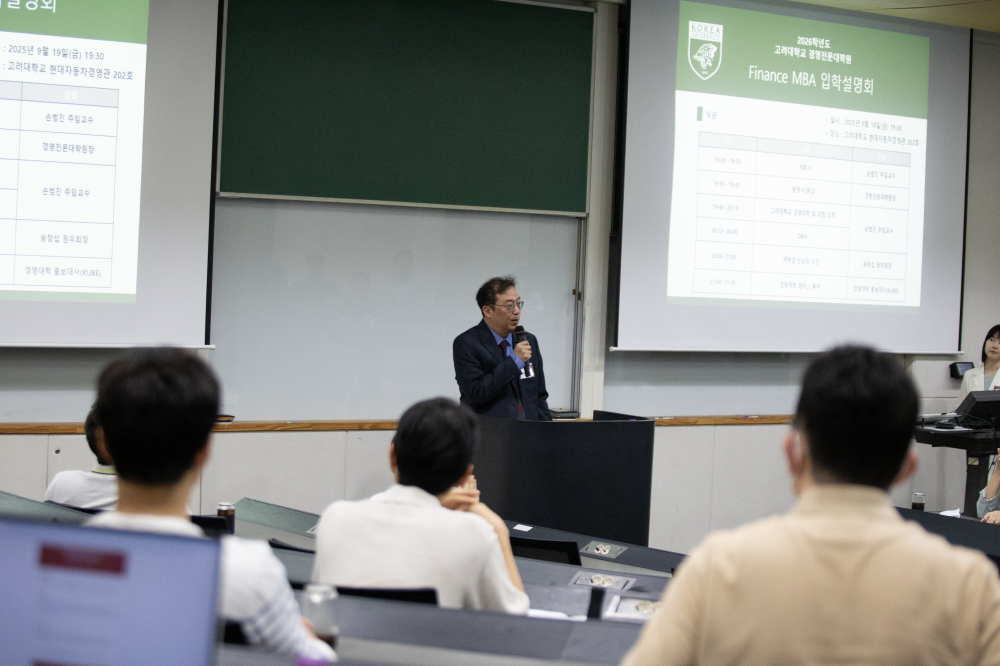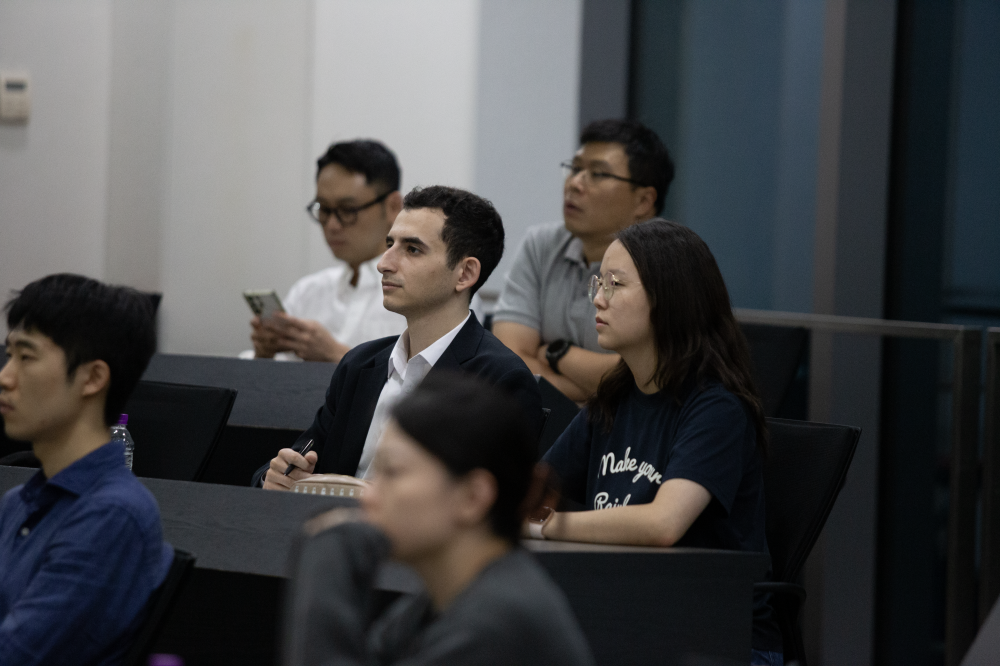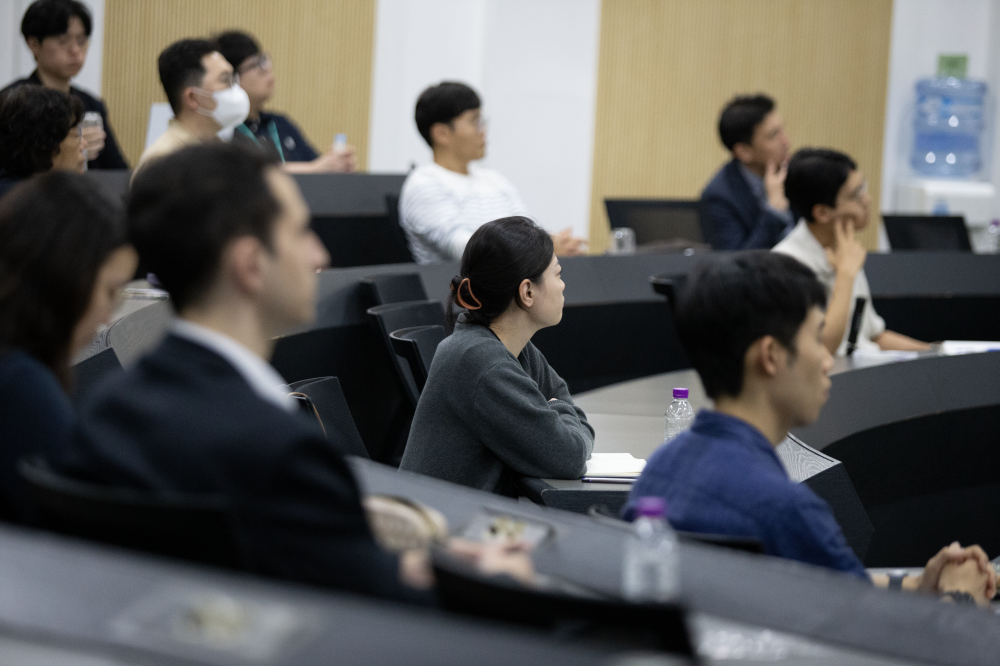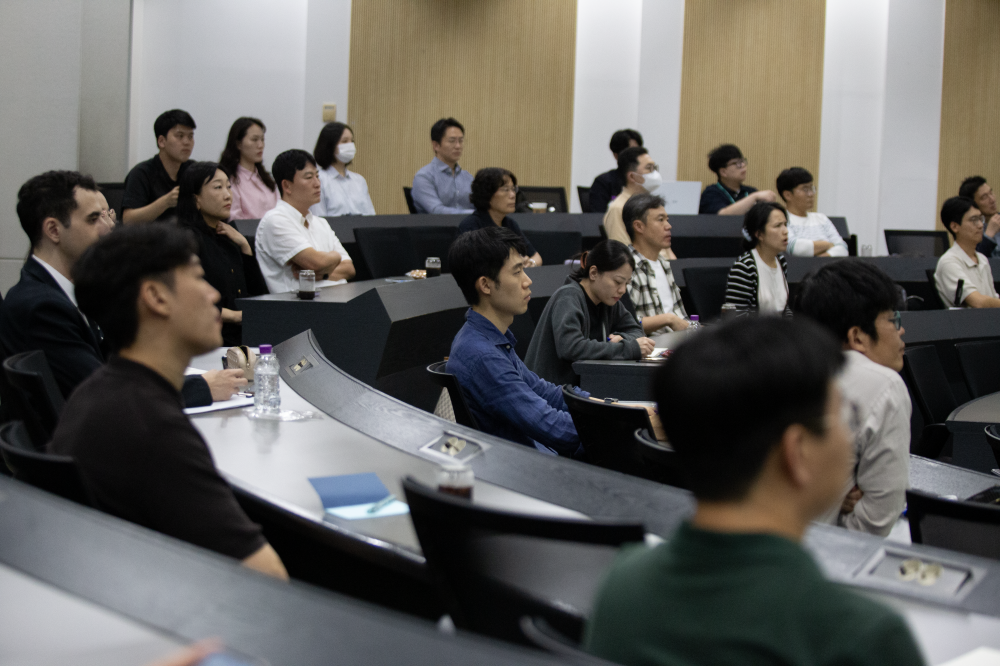News
KUBS News
2026 Finance MBA Admission Briefing: Nurturing Future Financial Leaders

The admission briefing for the 2026 academic year Finance MBA (hereinafter F-MBA) program was held on Friday, September 19, in Room 202 of the Hyundai Motor Hall at Korea University. The session was led by Professor Bumjean Sohn, the program’s academic director.
The F-MBA is an MBA program designed to cultivate specialists in finance and financial management, distinguishing itself from the K-MBA and E-MBA tracks. While the K-MBA is primarily geared toward middle managers and the E-MBA targets senior executives, the F-MBA focuses on developing professionals for the finance industry.

Professor Son emphasized, “An MBA program is not like medical school or law school, where a professional qualification is automatically granted upon graduation. The value of the program lies in the opportunities it provides for both personal and professional growth—and whether you choose to seize those opportunities depends on you.” He also advised, “Since two years can pass more quickly than expected, it is important to enter the program with clear goals in mind.”
The core strengths of the F-MBA program can be summarized in two key aspects: academics and networking. Professor Son explained, “Professionals who have worked in the field for nearly a decade may question the need for further academic study. However, as artificial intelligence continues to advance at a rapid pace, academic learning becomes an essential tool for adapting to changes in both life and the workplace.” In terms of networking, the program’s strength lies in its strong community of finance professionals. With a small cohort of 45 students—most of whom are employed in financial institutions or corporate finance departments—the program fosters a close-knit and collaborative network.
To graduate, students must complete a total of 45 credits, including at least 36 credits in core finance courses, with a minimum GPA of 3.0. Classes are held on weekday evenings and Saturdays. Course offerings include subjects such as Principles of Finance, Corporate Finance, and Python Programming for Finance.

The F-MBA curriculum includes courses in artificial intelligence and big data analysis, enabling students to learn statistical analysis techniques and R/Python programming for financial market analysis from the ground up. Professor Son noted, “Because most students in the program come from liberal arts backgrounds, we start from the fundamentals—but they should be prepared for a rigorous academic workload.”
A key component of the curriculum is the Independent Research course, which allows students to apply the theories and methodologies learned throughout the program to real-world challenges and develop practical solutions. Students work in teams under the close supervision of faculty advisors, gaining hands-on experience in scientifically analyzing and solving actual business problems. Professor Son noted, “You may end up learning even more through the Independent Research course than from the regular classes themselves.” Past cohorts have explored topics such as Bond Investment Strategies for Busy Professionals and The Current Landscape of Generative AI-Based Financial Services.
Next, Student Council President Changseop Song gave a brief overview of student life, introducing the council’s five departments and various networking activities, including the orientation, opening ceremony, joint retreats, hiking, and golf events.

After the briefing session, attendees joined a campus tour led by KUBE, the business school’s student ambassadors. Participants explored the campus while hearing explanations about key sites. One of the highlights was Relatum – The Site, a sculpture by artist Lee Ufan located on the lawn in front of the KUBS Main Building. The ambassadors explained, “The stainless-steel plate beneath the stone is polished like a mirror, so on clear days it reflects the sky,” which drew the admiration of many attendees.
Sungmin Lim, one of the attendees, shared his thoughts: “I currently work at a financial institution and am considering pursuing a degree to further my personal and professional growth. I was curious about the differences between the K-MBA and F-MBA programs, and after hearing today’s presentation, it’s clear that the F-MBA is much more specialized in the field of finance. The session was very informative and helpful.”
Applications for the F-MBA program are currently open from Monday, September 8, 2025, to Wednesday, October 15, 2025, at 3:00 p.m. Final candidates will be selected through a document review and interviews, with the final results announced on Friday, December 12, 2025. For further inquiries, please contact the Admissions Office by phone (+82-2-3290-1308) or email (mba_admissions@korea.ac.kr).


